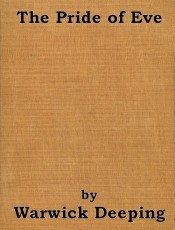that hard winter passed under the ferule of the “bull of apis” and the “great ape,” finally came to an end and spring returned; it was always a troublous time for us, the scholars, for the first mild days gave us a great longing to be out, and we could scarcely hide our restlessness. the roses budded everywhere upon our old walls; my beloved little garden, bright and warm under the march sunshine, tempted me, and i would tarry there a long time to watch the insects wake up, and to see the early butterflies and bees fly away. even the revised “donkey's skin” was neglected.
i was no longer escorted to and from school, for i had persuaded my family to discontinue a custom that made me ridiculous in the eyes of my companions. often, before returning home, i would take a long and roundabout way and pass by the peaceful ramparts from where i had glimpses of other provinces, and a sight of the distant country.
i worked with even less zeal than usual that spring, for the beautiful weather that tempted me out of doors turned my head and made study almost impossible.
assuredly one of the things for which i had the least aptitude was french composition; i generally composed a mere rough draught without a particle of embellishment to redeem it. in the class there was a boy who was a very eagle, and he always read his lucubrations aloud. oh! with what unction he read out his pretty creations! (he is now settled in a manufacturing town, and has become the most prosaic of petty bailiffs.) one day the subject given out was: “a shipwreck.” to me the words had a lyrical sound! but, nevertheless, i handed in my paper with only the title and my name inscribed upon it. no, i could not make up my mind to elaborate the subjects given to us by the “great ape”; a sort of instinctive good taste kept me from writing trite commonplaces, and as for putting down things of my own imagining, the knowledge that they would be read and picked to pieces by the old bogey made it impossible for me to compose anything.
i loved, however, even at this time, to write for myself, but i did it with the greatest secrecy. not in the desk in my room that was profaned by lessons and copy-books, but in the little old-fashioned one that was part of the furniture of my museum, there was hidden away a unique thing that represented my first attempt at a journal. it looked like a sibyl's conjuring book, or an assyrian manuscript; a seeming endless strip of paper was rolled upon a reed; at the head of this there were two varieties of the egyptian sphinx and a cabalistic star drawn in red ink,—and under these mysterious signs i wrote down, upon the full length of the paper and in a cipher of my own invention, daily events and reflections. a year later, however, because of the labor involved in transcribing the cryptographic characters i had chosen i discarded them and used the ordinary letters; but i continued my work with the greatest secrecy, and i kept my manuscript under lock and key as if it were an interdicted book. i inscribed there, not so much the events of my almost colorless existence, as my incoherent impressions, the melancholy that i felt at twilight, my regret for past summers, and my dreams of distant countries. . . . i already had a longing to give my fugitive emotions a determinative quality, i needed to wrestle against my own weaknesses and frailties and to banish, if possible, the dream-like element that i seemed to discover in all the things about me, and for that reason i continued my journal until a few years ago. . . . but at that time the mere idea that a day might come when someone would have a peep at it was insupportable to me; so much so indeed that if i left home and went to the island or elsewhere for a few days, i always took care to seal up my journal, and with the greatest solemnity i wrote upon the packet: “it is my last wish that this book be burned without being read.”
god knows, i have changed since then. but it would be going too far beyond the limits of this story of my childhood to recount here through what changes in my life's view-point it chances that i now sing aloud of my woes, and cry out to the passers-by, for the purpose of drawing to myself the sympathy of distant unknown ones; and i call out with the greater anguish in proportion as i feel myself approaching nearer and nearer to the final dust. . . . and who knows? perhaps as i grow older i may write of those still more sacred things which at present cannot be forced from me,—and by that means try to prolong beyond the bounds of my individual life, memory of my being, of my sorrows, and joys, and love.
